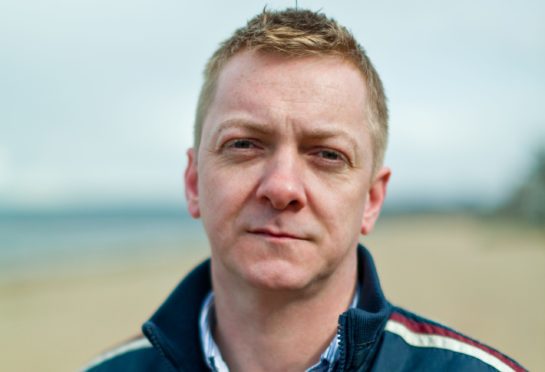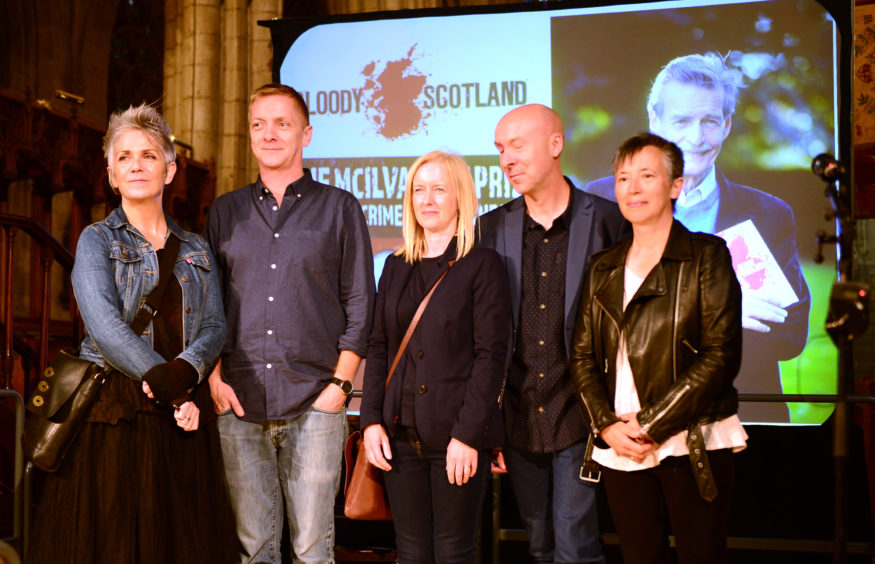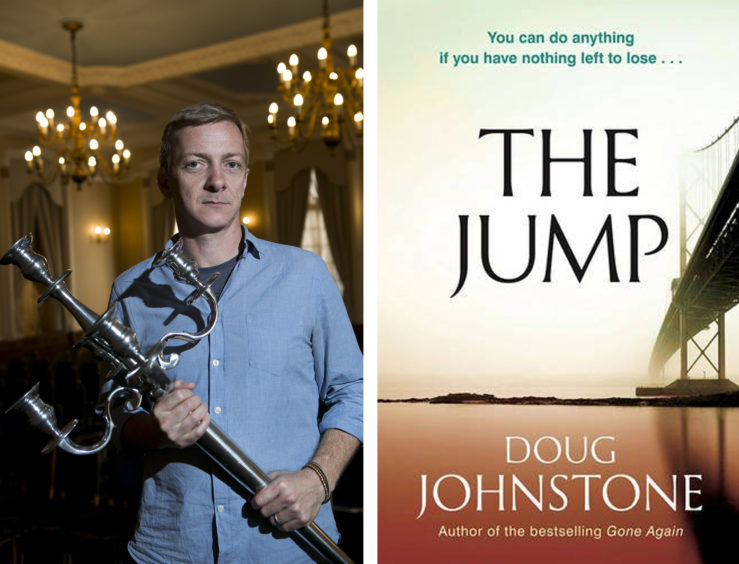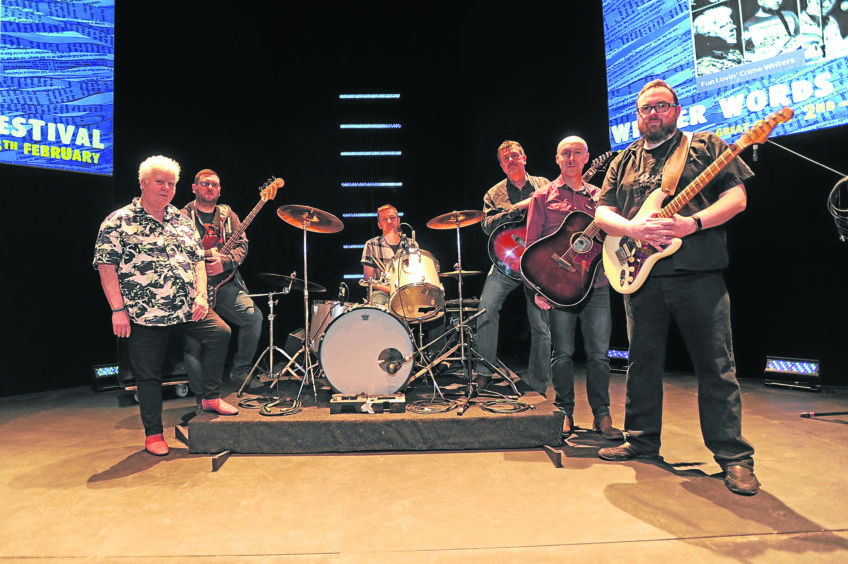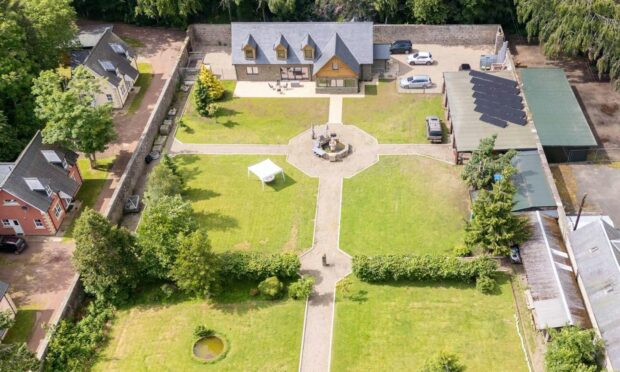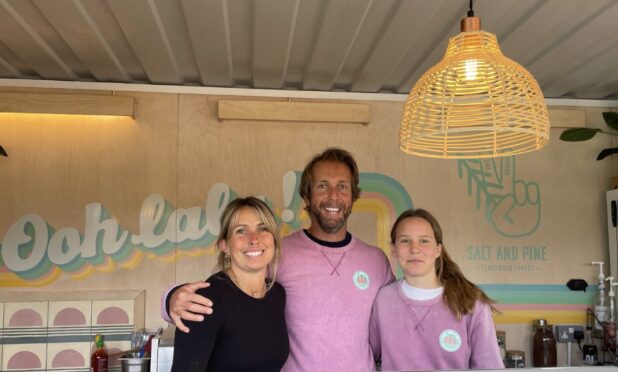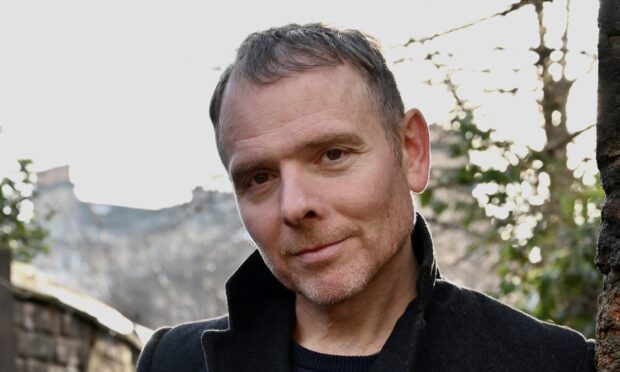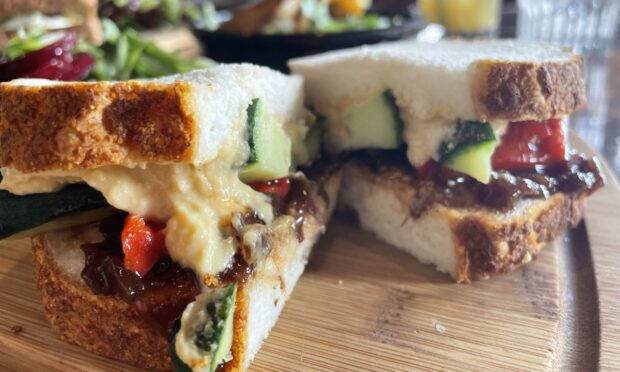Doug Johnstone, the author of The Courier’s new serial Fault Lines, tells Caroline Lindsay about his childhood in Arbroath and what inspires his books.
As regular readers will know, The Courier’s gripping new serial, Fault Lines by Doug Johnstone, started last week, something that Doug is rather chuffed about, especially as it’s the second book to be serialised in the paper.
“I’m totally thrilled,” he says. “Fault Lines is a strange book in one sense – it’s kind of speculative fiction, set in an alternative Scotland that is a major earthquake and volcano zone.
“It’s set in Edinburgh and there’s a fictional new volcanic island in the Firth of Forth.
“But apart from that odd set up, it’s in one way a conventional murder mystery – a woman finds a dead body at the start of the book and has to find out what happened.
“So hopefully readers will enjoy that mix of realistic action and inventive setting.
“It’s great The Courier decided to serialise Crash Land last year too,” he continues. “It’s a really interesting way to consume a story, in small discrete chunks. That novel was full of action and conflict, so hopefully the readers really enjoyed that aspect of it.”
Dog grew up in Arbroath and has many happy memories of his childhood. “I lived across the road from Keptie Pond for my whole childhood, so a lot of my memories are of mucking about over there,” he recalls.
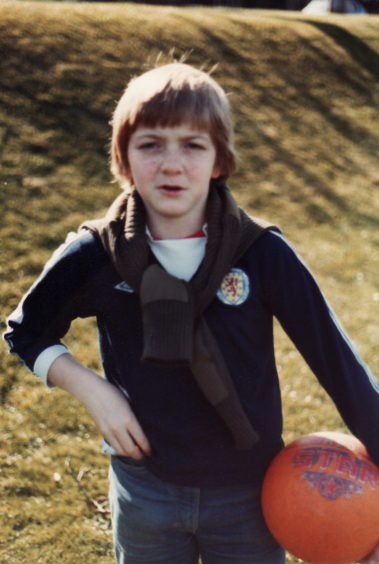
“We’d be on the ice in the winter, of course, and I remember falling through more than once and having to be hosed down in the back garden to get all the pond mud off me.
“Apart from that I used to love going on walks along Arbroath Cliffs, which always had the whiff of danger about it – sheer cliff edges right next to the path!
“My parents and sister both live in Dundee, so I’m back in Courier Country quite often. I’ve seen the renovation of Dundee over the years, and it’s been so impressive. It still feels great to see the bridge over the Tay when I arrive in town.
With a degree in physics and a PhD in nuclear physics, Doug admits he had a pretty circuitous route to becoming a writer.
“Although I was writing stories at school, I was mostly interested in science and maths,” he says. “I studied physics at Edinburgh University, then worked as an engineer in the aerospace industry for a few years.
“All that time I was still writing, and I was also doing freelance music journalism.
“I decided to switch to that as a career, which inspired me to take my fiction writing more seriously at the same time.
“It still took a long time to get published, a good few years and two failed novels, but my first novel, Tombstoning, which is set in Arbroath at a school reunion, was published in 2006.
“Since then I’ve had another 11 novels published, all modern day thrillers set in Scotland.”
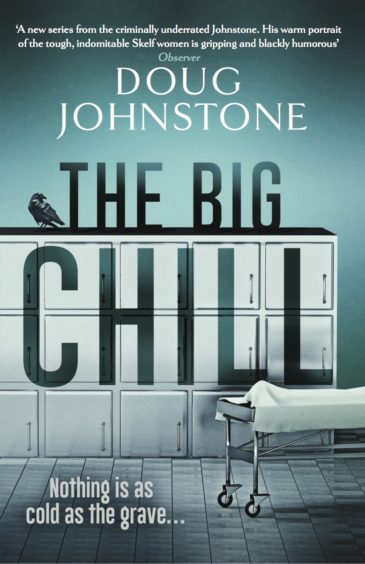
His latest book, The Big Chill, is the second part of a trilogy of books involving the women of the Skelf family. The first book, A Dark Matter, was publisher in January this year by Orenda Books.
“The Skelfs live in Edinburgh and run a funeral director’s and a private investigator’s, and the first book opens with them cremating Jim, the family’s matriarch,” Doug explains.
“The women left behind are his wife Dorothy, daughter Jenny and granddaughter Hannah, who have to take over the running of both businesses. In The Big Chill, they are coping with the trauma of the first book, dealing with other people’s grief with the funerals and investigating various mysteries.
“A car crashes into a funeral in the opening scene, and that leads to one investigation, while various other missing persons or deaths keep the women occupied. It’s a dark book about how we cope in times of stress and trauma, so I guess it’s pretty pertinent right now.”
Doug reveals he has always tried to write about ordinary people thrown into extraordinary situations.
“I don’t usually write about police detectives solving crimes or international spies shooting people in glamorous locations. I prefer to write about people like myself or like any of my readers, and putting them into a moral conundrum, so that the readers then asks themselves what they would do in those same circumstances.
“I’m definitely drawn to the darker side of the human psyche, so the books deal with death, grief, mental health, suicide, poverty and deprivation, but hopefully they’re also written with some dark humour and empathy for the characters too.”
Originally inspired by the likes of Iain Banks and Irvine Welsh, more recently he’s been enjoying American crime authors such as Megan Abbott, Sara Gran and Laura Lippman.
“And even more recently I’ve been getting back into science fiction, that I used to love as a kid, and writers like Jeff Vandermeer and Sue Burke are fantastic,” he smiles.
So how has lockdown affected Doug’s working day?
“My actual working day hasn’t changed that much, as it turns out I was pretty much living as a hermit anyway,” he says.
“I like to write in the mornings, I find that my brain works better and I have more writing energy then, so I’ll do three hours or so, write maybe 1,200 words or more hopefully.
“Then after lunch I tend to do other stuff, of which there’s always loads. Answer emails, fill in questionnaires, edit, copyedit, proof read, do publicity, workshops, creative writing teaching, a million other things that all add up to making a living.”
Currently in the middle of writing the first draft of the third book in the Skelfs trilogy, Doug reveals: “It’s called The Great Silence, and sees the women getting further into helping the living while dealing with the dead.
“The books are about how we connect with society and with the world, and hopefully I’m exploring that in ways that the reader will find interesting, while also still having crimes and mysteries to solve.”
He has a few tips for any budding writers out there. “It’s very banal advice, but keep plugging away at it,” he says.
“It’s very easy to NOT write, it’s the easiest thing in the world to step away from your work in progress. But just making yourself sit down and put words on the page makes a massive difference.
“I think aspiring writers get too hung up on making something perfect first time – no real writers work that way.
“It’s all about editing and shaping the work into something that’s readable, and that takes a long time and many edits. Also, I would say don’t be swayed by fashions that you see in the book world for certain kinds of stories – just write the one unique story that only you can write, the story that is burning inside of you waiting to be told. And good luck!”
He loves meeting readers at book events, and that’s been brought even more into focus over lockdown.
“I’ve had so many events and festivals cancelled, and I’ve actually realised that my whole social life is basically going to festivals and book events and meeting readers and other writers,” he says.
“It’s amazing to get feedback from people about my books, and it’s always interesting to hear readers share what they think, not only about my books but about other things they’ve read too.”
A talented musician, in his limited spare time, he loves to play guitar and drums when he’s not writing.
“I play the drums in the Fun Lovin’ Crime Writers, a band of crime writers with Val McDermid, Mark Billingham, Chris Brookmyre, Luca Veste and Stuart Neville,” he says.
“We love playing shows and hope to get back to that as soon as possible after lockdown. I also love writing and recording my own music at home, I find it really therapeutic.
“Apart from that, I also like to keep fit – hill walking, running, out on the bike, and football.”
Doug is also a co-founder of the Scottish Writers Football Club, for whom he plays midfield.
“It started in 2012 when myself and two other writers, Allan Wilson and Mark Buckland, realised there were other writers’ football teams, and that we knew a few writer pals who played, so we set up a team,” he explains.
“Allan ran it for the first few years, and I’ve taken it over more recently.
“We play internationals against other writers’ teams from other countries, as well as local friendlies against charity teams and so on. It’s a wonderful way to get together because writing can be so solitary, but the camaraderie in the squad is really brilliant. We might not win every game – by some margin – but we have a great time anyway.”
